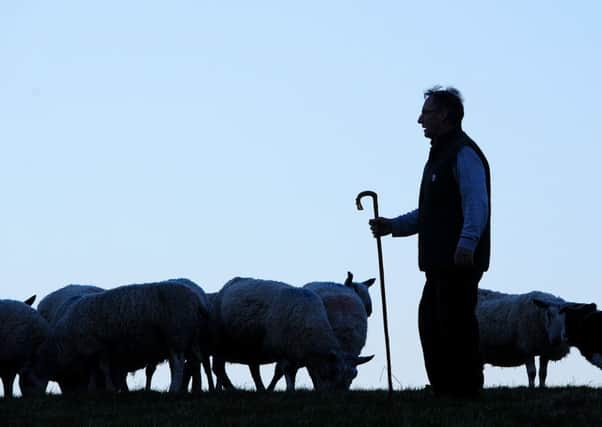Co-operation is key for farm tenancy relationships
This article contains affiliate links. We may earn a small commission on items purchased through this article, but that does not affect our editorial judgement.


The appointment, confirmed by the Scottish Parliament at the end of December, will see McIntosh join five others on the Land Commission, a new body set up under the 2016 Land Reform Act to review law and policy development on matters relating to all aspects of Scotland’s land.
McIntosh said he was keen achieve his aims through co-operation: “My role is to facilitate good relations between landlords and tenants so that the sector can develop on the basis of a partnership based on mutual respect and understanding.”
Advertisement
Hide AdAdvertisement
Hide AdBefore he retired in 2015, McIntosh held the dual role of director of Forestry Commission Scotland and the Scottish Government’s environment and forestry director. He was also instrumental in getting the commission’s starter farm initiative for new entrants up and running.
He said that his 41-year career with the Forestry Commission had included involvement in many land issues outside the forestry sector, and added that his 15 years as a partner in a livestock farm had also given him a firm grounding in land management issues.
While he said a co-operative approach within the industry should be the way forward, he had no delusions about the scale of the task he is likely to face.
He said: “The Agriculture Holdings Review identified examples of dysfunctional landlord/tenant relationships based on a ‘them and us’ culture, so a culture change towards a more mutually beneficial partnership approach would represent success.”
And he stressed that a partnership approach with other industry bodies was the way forward for ensuring not only the change of mindset but also in drawing up the codes of practice which would help create the framework on which this would be built.
He said: “I am very clear that progress can only be made through dialogue and consensus, so will certainly want to continue to have a close working relationship with STFA, SLE and NFUS and with the professional bodies representing the agents who operate on behalf of both landlords and tenants.”
He said that part of the TFC’s role would be to produce codes of practice covering the main areas of interaction between landlords and tenants and dealing particularly with those areas where conflict was possible – such as rent reviews, and agreeing and recording tenants’ improvements. He said these would build on the guides produced by Andrew Thin in his Independent Tenant Farming Adviser role.
McIntosh added: “There are, as yet, no penalties associated with failure to adhere to the codes of practice, but the Land Court will take into account the TFC’s decisions when dealing with related cases that are referred to it.”
Advertisement
Hide AdAdvertisement
Hide AdMcIntosh said he hoped that by following the codes, and seeking the informal involvement of the TFC, the majority of issues could be resolved without recourse to the formal complaints process.
